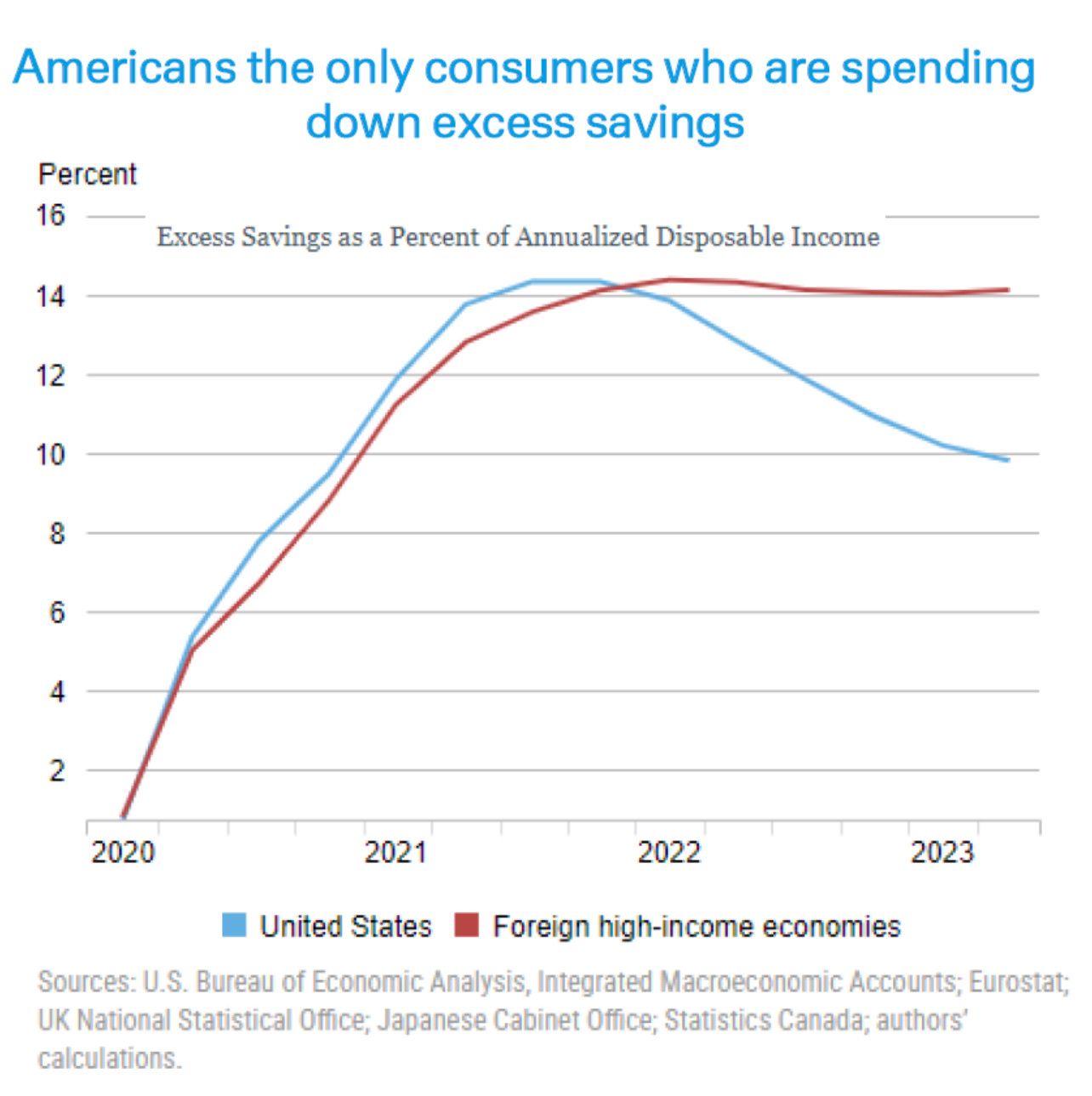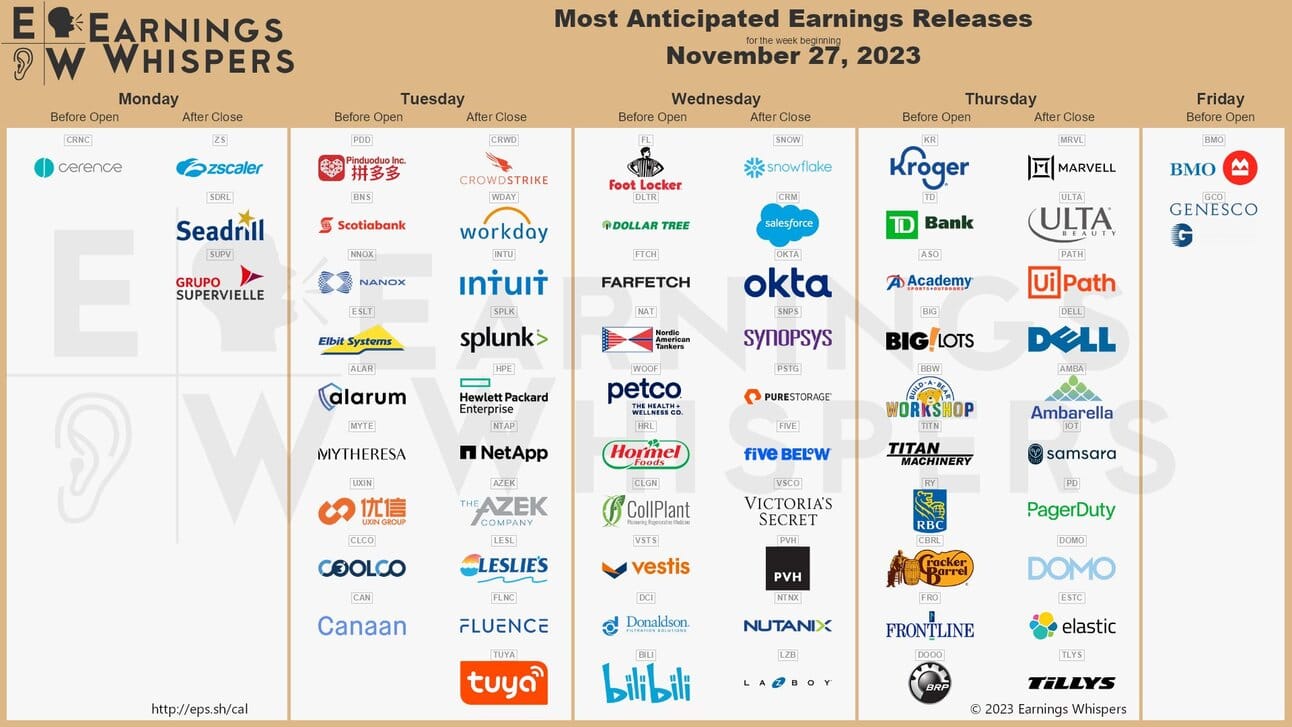Rise and shine everyone. Happy Monday.
I hope everyone had a relaxing weekend. We have a big week ahead of us, with lot of macro events. We have treasury issuances of ~$150bn on Mon/Tues. This week for the US we have PCE on Wednesday, Housing data through the week, ISM manufacturing data on Friday, plenty of Fed speakers all week and then Chair Powell speaks on Friday to close out the week.

Treasury Auction Schedule
Markets closed relatively flat on Friday. Mixed performance from the mega cap tech next week and sector performance was led by healthcare and staples. Looking at sector momentum, it looks like consumer discretionary and technology has actually slowed down a little after their early rallies, and the rest of the sectors are now catching up. A broadening into financials and healthcare, the two under-performers for the year, could actually see the market remain bullish but range-bound until the Fed meeting in mid-December, particularly with the US Dollar remaining in check.
US Equity futures are trading lower this morning. Yields opened higher in overnight trading but, is off their highest levels since morning. The Yield Curve remains at -0.48%. Gold seems to have gotten a boost during the holidays, surging to $2012/oz, while continues to languish at $74/bbl ahead of the OPEC meeting on Nov 20. Bitcoin is slightly lower but still remains at 37,197.
A quick reminder!
Starting this week, Breakfast Bites is going paid, as part of the MacroVisor Premium Plan.
We currently have a promotion running for a 30% discount until Tuesday 28 Nov 2023, which you may take advantage of to upgrade to Premium.
Thank you to everyone who signed up over the weekend and took advantage of the plan!
In addition to the daily Breakfast Bites, upgrading to Premium will also give you access to our Weekly Dashboard with outlook on global asset classes; Actionable Ideas to trade; Long-Term Portfolio Ideas, our Global Thematic Macro Research; and Timely Analysis of pertinent Economic Data releases.
Asia and Australia
Asia markets ended lower almost everywhere Monday. Greater China led down by Shenzhen, Hong Kong also weaker but off its worst. Taiwan sharply lower on more domestic political developments, more modest losses in Australia and South Korea. Southeast Asia lower ex Jakarta. Japan lower despite bright start.
Cash conditions in China's money markets started to show fresh signs of stress Monday amid end-of-month demand and recent liquidity squeeze. Reuters cited traders and analysts who said borrowing costs remained high for funds that supply financial institutions, especially non-banks, as they approach month-end.
Bloomberg reported HIBOR rate in Hong Kong jumped to 16-year high Monday on end-year demand for cash as well as stockpiling for regulatory purposes. One-month HIBOR rose 15 bps to 5.53%, highest since Oct-07.
Eight Chinese government agencies and ministries led by PBOC issued 25-point statement to step up financial support for country's private sector, seen as latest effort by Beijing to boost business confidence amid economic headwinds.
China’s industrial profits rise at a slower rate:
Profits at industrial firms in China for October rose 2.7% y/y, following 11.9% increase in September, logging third consecutive monthly growth.
State-owned enterprises saw profits drop 9.9% in Jan-Oct (vs -11.5% in Jan-Sep), while foreign firms posted 10.2% fall (vs -10.5% in Jan-Sep).
Private enterprises recorded a 1.9% drop (vs -3.2% in Jan-Sep).
Europe, Middle East, Africa
European equity markets lower this morning, pulling back on falling energy prices.
Deutsche Bank analysts cut 2024 German GDP forecast from +0.3% to -0.2% amid Constitutional Court ruling crisis. This follows Chancellor Scholz's decision to suspend the debt brake for 2023 and retroactively include at least €37 billion in new off-budget debt. This debt aims to mitigate the effects of rising electricity and gas prices on households and consumers. A constitutional court ruling on November 15th has put approximately €130 billion in spending from 2024 to 2027 at risk. Berenberg analysts predict that Germany's GDP will decrease by about 0.75% annually in these years compared to previous spending plans, with a potential reduction of up to 1% in 2024.
Late on Friday, Estonia central bank chief Muller, a known hawk, said the ECB is unlikely to hike rates again. This week's inflation data may justify Muller's stance, and put stock into investors' expectations for earlier rate cuts.
Governor Bailey of the Bank of England (BoE) has cautioned against expecting a rapid decrease in inflation. Bailey projected that by the end of the first quarter of 2024, inflation might fall to just under 4%, but to achieve the 2% target, monetary policy will need to remain restrictive.
The Americas
BoFA Flow Show for 4-week ending Nov 21, due to Thanksgiving
Stocks: Biggest 2-week inflow since Feb 2022 ($40B)
Gold: biggest inflow since May ($0.7B)
IG Bonds: biggest inflow to IG bonds in 15 weeks ($3.1B)
EM Debt; first inflow past 17 weeks ($20m)
Tech: biggest inflow past 12 weeks ($2.4B)

Nasdaq this week listed a series of new options contracts tracking some of the most popular exchange traded funds investing in gold, silver, natural gas, oil and long-term Treasuries. This should bring more volatility to these funds. 0DTE’s have certainly changed the landscape for US equity trading and
November S&P Global flash manufacturing PMI of 49.4 missed consensus for 50.2, down from last month's 50.0 print and lowest print in three months. Manufacturing output index held slightly in expansion territory, though fell 0.8 points to 50.4. Report said goods producers saw stagnant new orders, though new export orders rose for the first time since July.
Some of the Black Friday sales numbers are out:
Mastercard Spendingpulse says Black Friday sales rose 2.5% y/y in nominal terms
Adobe Analytics says Black Friday ecommerce spending rose 7.5% to record $9.8B
Chart of the Day
Pandemic-era excess savings were built up in quite a few high-income economies but, the US consumer seems to be the only one spending down the excess. (Source: Bloomberg Opinion).

Calendars
(news taken from Reuters, FT, Bloomberg; Calendar from Trading Economics)


